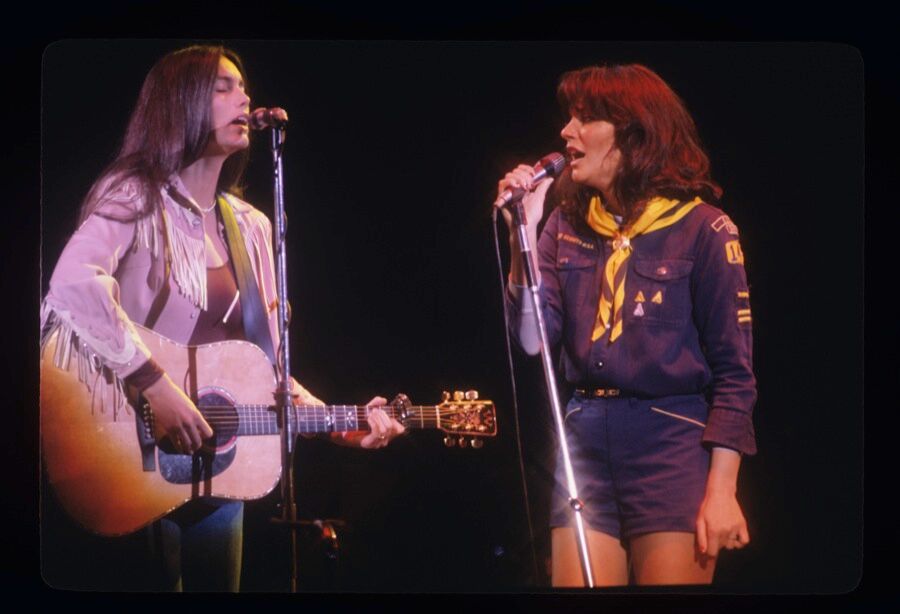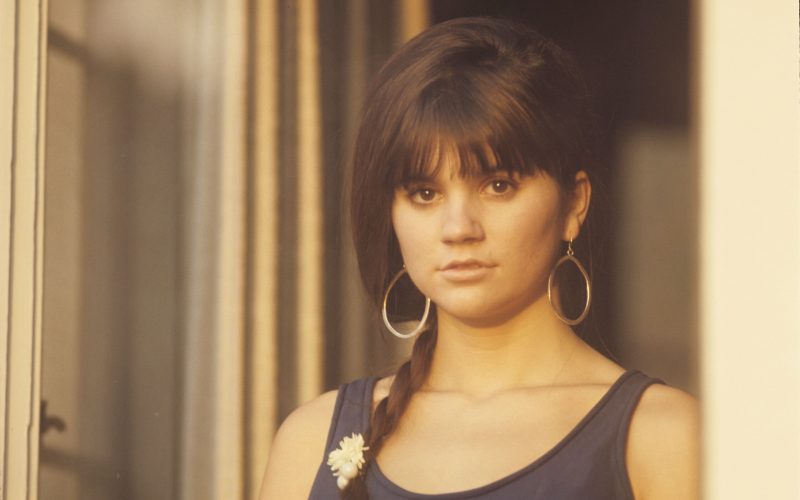Linda Ronstadt: The Sound of My Voice (Epstein and Friedman, 2019)
There is a scene in Toni Morrison: The Pieces I Am — the year’s other great documentary about an iconic and influential female artist — where one of her academic admirers relates two of the writers fans praising her for, in turns, transcending race and yet being unapologetically black.
Ronstadt, too, embraced her own heritage while managing to avoid being pigeon-holed as an ethnic or just a “female” artist. More than any other recording artist of my lifetime, Ronstadt appears to have found a balance between being a soloist and a collaborator. In one of the documentary’s key moments, she relates seeing Emmylou Harris early in that singer’s career and thinking, “She’s doing exactly what I’m doing…and she’s doing it better.” How Ronstadt overcame the temptation towards jealousy or envy is telling. She loved the music, and she didn’t want anything, including her own personal desire for success, to interfere with her ability to enjoy the songs and performances that would not merely fuel her success but also, more importantly, enrich her life.
Ronstadt was able to develop friendships with other women, and the documentary contains telling and touching testimonials from Harris, Bonnie Raitt, Dolly Parton, and others. She was also able to work well with and alongside men. Don Henley, Jackson Browne, David Geffen, and Cameron Crowe all show up to talk about her role in rock and roll history.

I suspect that the passion for the music that allowed Ronstadt to avoid the emotional pitfalls of professional jealousy also helped her to maintain a sense of authenticity and mental health in an industry that seems more often fueled by manufactured imagery. She could rock a scout’s uniform or a tulle dress in part because, it was what she wanted to wear. With Ronstadt, the changes in costume were never makeovers so much as different expressions of differing facets of a well rounded human being exploring and expressing herself.
Of course none of that would matter much if she hadn’t had the vocal chops to excel at rock, pop, opera, and country in equal measure. Ronstadt was the first female recording artist to record four consecutive platinum albums, so the fact that she is not as frequently accorded the same legendary status as some less accomplished singers of her generation may say something about the industry’s increasing tendency to value the showy over the substantial.
Perhaps no moment in the documentary better summarizes Ronstadt’s self-effacing humility than when she recollects that both she and co-star Kevin Kline won Tony Awards in 1981 for The Pirates of Penzance. “Kevin deserved it more than I did,” she states. “All I did was walk around and sing.”
All she did was walk around and sing better than just about anyone else of her generation.


You hit the nail on the head…”All she did is walk around and sing better than just about anyone else of her generation.”
That says it all.